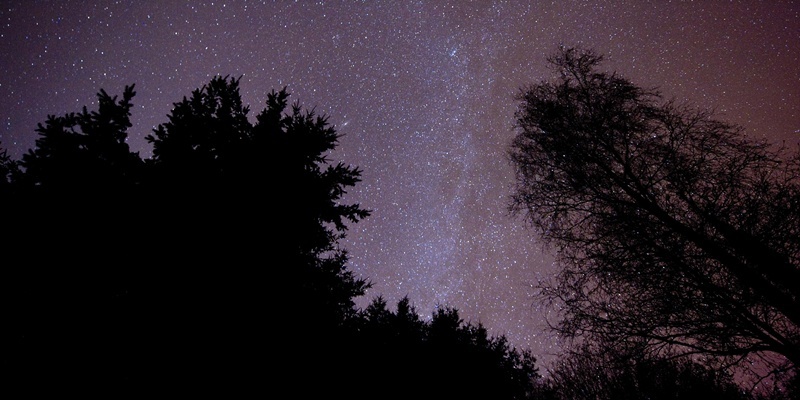A Dundee astronomer has backed the idea of a temporary ”blackout” to allow people to study the night sky.
Ken Kennedy, director of observations with Dundee Astronomical Society, believes turning off street lights for a short period could be an ideal way of getting youngsters involved in science.
His words come just days after the publication of a report that suggested that fewer people in England were able to see the stars due to light pollution.
It is a problem that affects any urban area and Mr Kennedy believes that if young people were able to view the night sky, even for a short period, then it may ignite a greater interest in scientific studies.
He said: ”It would be nice for young people to see the Milky Way so we could point out to them the rim of our galaxy.
”It would have to be organised, even to the point of having people who know the night sky on hand to point out things that would be a great benefit.
”I’m always amazed by the response of youngsters when we show them the stars. Even if just a clutch of them were to take up an interest in astronomy, just as a hobby, then that would be terrific.”
The report by the Campaign to Protect Rural England and the Campaign for Dark Skies (CFDS) suggested that just 53% of those asked to participate on a star count failed to see more than 10 stars in the Orion constellation.
The report criticised local authorities for their expenditure on street lighting, the main cause of light pollution, despite efforts by many to use them more efficiently. The groups also claim that unnecessary light is also affecting sleep patterns and impacting on wildlife.
Mr Kennedy, who spent four years as astronomer at Dundee’s Mills Observatory and is director at the British Astronomical Association’s Aurora Section, believes hosting an organised blackout, even just a short one, could play an important role in opening up the wonders of the universe to more people.
He added: ”People might think that there will be burglars everywhere and cars will keep bashing into one another, but I think that it is a great way to take science and promote it in a way that will excite people.
”The Mills Observatory is a bit sheltered and when you take youngsters up there they are always amazed about how much they can see. Allowing them to see Mars, Saturn and Jupiter gives them a really strong idea of science without forcing it down their throats.”
The Campaign for Dark Skies, one of the two parties that commissions the annual study into the state of Britain’s night sky, described light pollution as a ”disaster” for astronomers across the country.
A map produced by the group suggests that much of Tayside and Fife is ”polluted” by artificial light, although parts of Angus are said to be ideal for stargazing.
Like Mr Kennedy, Bob Mizon from the CFDS believes that a whole generation could be missing out on the wonders of the universe.
He said: ”Light pollution is a disaster for anyone trying to study the stars. It’s like a veil of light is being drawn across the night sky, denying many people the beauty of a truly starry night.
”Many children growing up today will never see the Milky Way, never see the unimaginable glory of billions of visible stars shining above them.”
Photo by Ben Birchall/PA Archive
